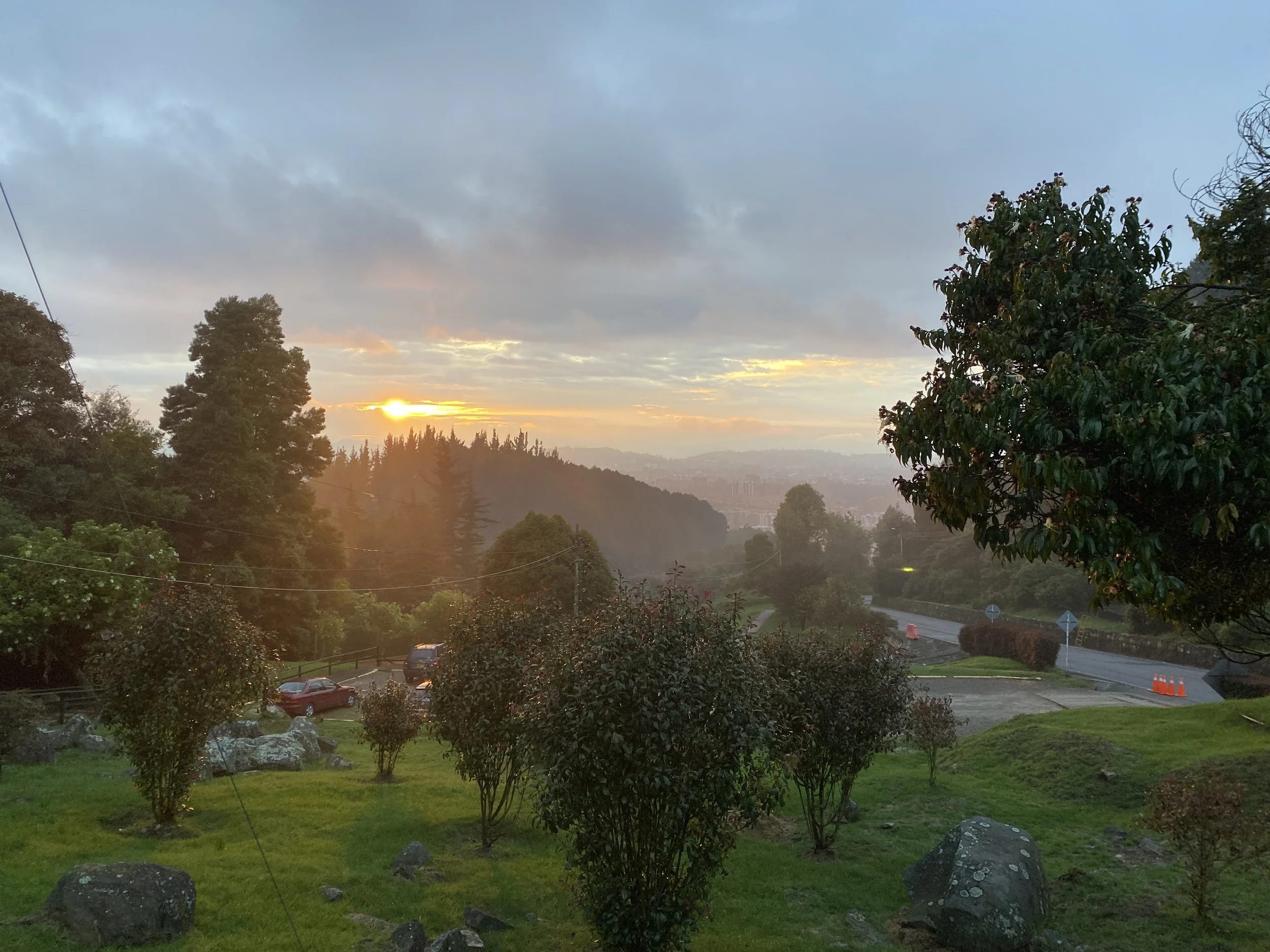La semana pasada, más de 200 cañeros protestaron ante el Ministerio de Trabajo de la República Dominicana, pidiendo que se actúe sobre la situación de los derechos humanos en Central Romana a la luz de la WRO. Coordinador sindical Jesús Núñez, afirmó: "Estamos de acuerdo con las sanciones, pero no se pueden levantar sin respuesta a nuestras demandas".
Workers in Dominican Republic support US ban on sugar imports
Last week, more than 200 sugarcane workers protested before the Dominican Republic’s Ministerio de Trabajo (Ministry of Labor), calling for action on the human rights situation at Central Romana Corporation Limited in light of the US import ban on the company’s raw sugar and sugar products. Union Coordinator Jesús Nuñez said: “We’re on board with the sanctions, but they can’t be lifted without response to our demands.”
The Next World Cup Doesn’t have to be a Human Rights Disaster
This post discusses human rights abuses associated with the 2022 World Cup that are currently under global scrutiny. We look briefly at these abuses and some of the systems that drive them. We then suggest basic steps that FIFA and other world sporting event organizers should take to address human rights abuses behind mega sporting events.
LA CBP EMITE UNA ORDEN DE RETENCIÓN CONTRA LA EMPRESA AZUCARERA DOMINICANA CENTRAL ROMANA, PROVEEDORA DE DOMINO SUGAR Y FLORIDA CRYSTALS
El 23 de noviembre de 2022, la Oficina de Aduanas y Protección Fronteriza (CBP, por sus siglas en inglés) de los Estados Unidos emitió una Orden de Retención (WRO, por sus siglas en inglés) contra su producción de azúcar y productos azucareros producidos por Central Romana Corporation, Ltd (Central Romana) en la República Dominicana. Recibimos esta WRO y urgimos al CBP a que se asegure de que Central Romana adopte y a haga cumplir medidas efectivas para remediar las atroces condiciones de trabajo y el trabajo forzoso que tienen lugar en su propiedad y en las condiciones que la empresa creó.
CBP Issues Withhold Release Order Against Dominican Sugar Company Central Romana, Supplier to Domino Sugar and Florida Crystals
On November 23, 2022, Customs and Border Protection (CBP) issued a Withhold Release Order (WRO) against all sugar and sugar products produced by Central Romana Corporation Limited (Central Romana) in the Dominican Republic. We welcome this WRO and urge CBP to ensure that Central Romana takes real steps to remediate the egregious working conditions and forced labor taking place on its property and under conditions the company created.
Ending Slavery in Some State Prisons is Not Good Enough. We Must #EndtheException for All.
Yesterday’s election results gave momentum to a national movement to #endtheexception (led by the Abolish Slavery National Network). We urge everyone, as you wait for the balance of power in Congress to be decided, to contact your representatives and demand they pass House Joint Resolution 53 and Senate Joint Resolution 21, identical proposals to amend the US Constitution “to prohibit the use of slavery and involuntary servitude as a punishment for a crime.”
CAL APORTA MÁS PRUEBAS SOBRE LA COMPLICIDAD DE EMPRESAS EN EL CONFLICTO ARMADO COLOMBIANO A LA JEP
El mes pasado, Corporate Accountability Lab presentó un informe a la Jurisdicción Especial para la Paz de Colombia ("JEP"). El informe examina el papel que tuvieron las multinacionales bananeras en el conflicto armado colombiano y traslada información y evidencia asociada con litigios en tribunales estadounidenses. Esta información evidencia presuntos acuerdos de financiación que beneficiaron a empresas y grupos armados ilegales, los cuales cometieron crímenes y violaciones a los derechos humanos. Este blog proporciona información sobre el presunto papel de Chiquita y Dole en el conflicto armado por medio de su financiación a grupos paramilitares. Este blog también amplía la presentación anterior de CAL sobre el papel que Drummond y Prodeco tuvieron en el conflicto, abordando y proporcionando recomendaciones sobre temas como la violencia antisindical, una transición justa y alternativa a combustibles fósiles, y una justicia restaurativa.
CAL PROVIDES MORE EVIDENCE OF CORPORATE COMPLICITY IN ARMED CONFLICT TO COLOMBIAN PEACE TRIBUNAL
Last month, Corporate Accountability Lab submitted a report to Colombia’s Special Jurisdiction for Peace (“JEP” for its Spanish acronym). The report analyzes the role that multinational banana companies played in the Colombian armed conflict and provides evidence obtained by U.S. courts of financing arrangements benefiting these companies and illegal armed groups that committed widespread human rights abuses. This post provides information regarding Chiquita and Dole’s alleged role in the armed conflict and expands on CAL’s earlier submission by addressing and providing recommendations on the issues of anti-union violence, a just transition away from fossil fuels, and restorative justice.
Halloween Chocolate is Haunted by Child Labor
At Corporate Accountability Lab, we love chocolate as much as anyone, but this Halloween, we’re haunted by the harrowing stories cocoa farmers told our attorneys during field visits across Cote d’Ivoire and Ghana last month. Some stories in particular stand out: one village’s entire harvest — thousands of dollars’ worth of cocoa beans — being stolen; twelve-year-old children going to work on cocoa farms full time; company representatives adjusting bean-weighing scales so that farmers are credited for less production than they are owed; devastating tree diseases wreaking havoc on cocoa farms, decreasing yields by as much as 60 percent; companies refusing to pay the premiums they promised to farmers; families without food or access to any sort of medical care; and communities without schools and teachers.
CAL Welcomes Seven New Board Members
CAL is extremely proud to welcome seven wonderful new board members to our team! Zamira Djabarova, Raphael Hoetmer, Kish Parella, Kaitlin Cordes, Jillian Tuck, Erin Essenmacher, and Elisabeth Mabus each bring unique skills, qualifications, and energy to our board. At an in-person retreat earlier in October with our four returning board members, Ed Vogel, Laura Vilim, Lupita Aguila Arteaga, and Jenna McElroy, we saw firsthand how well the group works together. We’re certain big things are to come, and we’re thankful to have the guidance of this special group of people. Read on to get to know them a bit more.
Universal Jurisdiction: Complaint on Uyghur Genocide Submitted to Argentine Court
Lawyers acting for the Uyghur Human Rights Project (UHRP) and the World Uygur Congress (WUC) filed a criminal complaint in Buenos Aires for genocide and crimes against humanity committed against Uyghurs and other Turkic people. If Argentine officials hear the case, it will be the first time that evidence of the genocide happening in northwest China has appeared before a court.
Advocates Urge CBP to Block Imports of Sugar from the Dominican Republic, Citing Forced Labor
For decades, Central Romana’s sugarcane workers in the Dominican Republic have labored under dangerous conditions, often working thirteen hour days in the hot sun, cutting sugarcane with machetes, and earning poverty wages. Most workers live in Central Romana’s bateyes (essentially company towns) in dilapidated homes, many of which do not have running water or electricity. Moreover, most of Central Romana’s workers are Haitian or of Haitian descent. Although many were born in bateyes, they often lack documentation and regular immigration status – a result of discriminatory laws. Central Romana has exploited their workers’ vulnerability to keep them in conditions of forced labor.
TO FULFILL U.S. OBLIGATIONS & HOLD CORPORATIONS ACCOUNTABLE FOR AIDING AND ABETTING WAR CRIMES, CONGRESS MUST AMEND THE WAR CRIMES ACT
Despite passage of the War Crimes Act (WCA) in 1996 and amendment in 1997, the United States criminal code does not—outside narrowly defined circumstances—allow the government to prosecute war criminals in federal courts. But widespread accusations of war crimes committed by Russian soldiers in Ukraine has spurred a bipartisan effort in Congress to breathe new life into this “dead letter” statute. If passed, the Justice for Victims of War Crimes Act of 2022—a recently introduced amendment to the WCA—would bring the United States more in-line with its duties under the Geneva Convention and more in-step with allies abroad…. The new bill would also create an important mechanism for holding corporations accountable for aiding and abetting war crimes. For this reason, CAL urges Congress to swiftly enact the proposed amendment.
The 2022 CLASP Lab Convening in Bogotá: a Scrapbook
From June 26th to June 28th, 2022, CAL and our partners at the African Coalition for Corporate Accountability, Dejusticia, and the Comisión Intereclesial de Justicia y Paz held an in-person gathering of the Corporate Liability and Sustainable Peace (CLASP) Lab, a collection of nearly 40 leaders and advocates from 25 countries, in Bogotá, Colombia. The convening was the culmination of a year-long virtual “social lab” process in which we led the group through an adaptation of our legal design process around the question of corporate impunity for human rights and environmental abuses committed during conflict–and how to break with that impunity.
FIFTY YEARS OF CORPORATE EXPLOITATION: ENVIRONMENTAL, LABOR, & HUMAN RIGHTS ABUSES BY US MINING GIANT FREEPORT (PART II)
In our first post of this three-part series, we outlined Papua’s violent colonial history, the ongoing Free West Papua movement, and the inextricable connection between this history, present-day struggles, and Freeport’s operations in the region. In this post, we’ll dive into the specific harm experienced by mine workers, surrounding Indigenous communities, and the unique Papuan ecosystem– and, we’ll describe Freeport’s alleged role in all of it. For over fifty years, Papuans have suffered for the sake of a foreign company’s profits. Freeport’s initial investment, made in the throes of colonialism, is a critical part of this story, and the company’s dominance over Papua’s economy and institutions continues today, making accountability very difficult to achieve.
Recent Corporate Accountability Legislation, Part II: The Fashioning Accountability and Building Real Institutional Change (FABRIC) Act
The Fashioning Accountability and Building Real Institutional Change Act (FABRIC Act) has been described as world-leading and labeled a “landmark” bill, the “first-ever” of its kind, and transformative and groundbreaking. We’ve heard this type of rhetoric before about other federal and state legislative proposals purporting to revolutionize protections for supply chain workers — and we’ve been quick to counter that those bills, while disguised as human rights legislation, failed to deliver systemic change, did not provide for victim agency, and ultimately perpetuated the status quo of corporate impunity.
Recent Corporate Accountability Legislation, Part I: The European Commission’s Directive on Corporate Sustainability Due Diligence
It is far too easy for multinational corporations to evade liability for human rights and environmental harms, especially when the companies – which are often based in the European Union (EU) or in the United States (US) – commit those harms in the Global South. We have seen this again and again, from Shell’s extensive pollution in the Niger Delta to the chocolate industries’ reliance on forced labor and hazardous child labor. To address this crisis of impunity, we must pass stronger legislation – legislation that makes companies accountable for their entire supply chains – across the Global North.
The Uyghur Forced Labor Prevention Act: CBP Must Enforce to the Fullest Possible Extent
Today, June 21, 2022, the Uyghur Forced Labor Prevention Act (UFLPA) went into effect. This legislation passed with overwhelming bi-partisan support, a rarity in this current political climate. The UFLPA establishes a rebuttable presumption that no goods produced wholly or in part in the Xinjiang Uyghur Autonomous Region (XUAR) may be imported into the US. Importers may rebut the presumption by presenting clear and convincing evidence that the goods were not produced using forced labor – a high bar.
21 años de impunidad empresarial y la resistencia del sindicato colombiano Sintramienergética
El mes pasado, la Comisión Colombiana de Juristas (CCJ) en alianza con PAX Colombia y el Sindicato Nacional de Trabajadores de la Industria Minera, Petroquímica, Agrocombustibles y Energética (Sintramienergética) presentó el informe titulado “La explotación minera de Drummond Ltda.: epicentro de persecución, asesinatos y violaciones de libertades sindicales” a la Jurisdicción Especial para la Paz (JEP). El informe se centra en la violencia sufrida por el sindicato Sintramienergética, incluyendo el exterminio de sus líderes sindicales en el 2001. Este blog es una actualización del blog de abril de 2021. Esta entrada proporciona información adicional sobre los asesinatos de los líderes sindicales, a la vez que describe su trabajo, el contexto en el que fueron asesinados y la lucha actual contra la impunidad por sus muertes.
21 Years of Corporate Impunity - The Systematic Attempt to Eliminate a Union’s Leadership in Colombia
Last month, the Comisión Colombiana de Juristas (CCJ) in alliance with PAX Colombia and the Sindicato Nacional de Trabajadores de la Industria Minera, Petroquímicas, Agrocombustibles y Energética (Sintramienergética) submitted a report entitled Drummond Ltda. Coal Mining: epicenter of persecutions, assassinations and violations to freedom of association to the Special Jurisdiction for Peace (JEP, for its Spanish acronym). The report focuses on the violence suffered by the union Sintramienergetica, including the extermination of its leadership in 2001. This blog post is an update to CAL’s blog from April 2021. This post provides additional information on the union leaders’ assassinations while describing their organizing work, the context in which they were killed, and the ongoing fight against impunity for their deaths.























